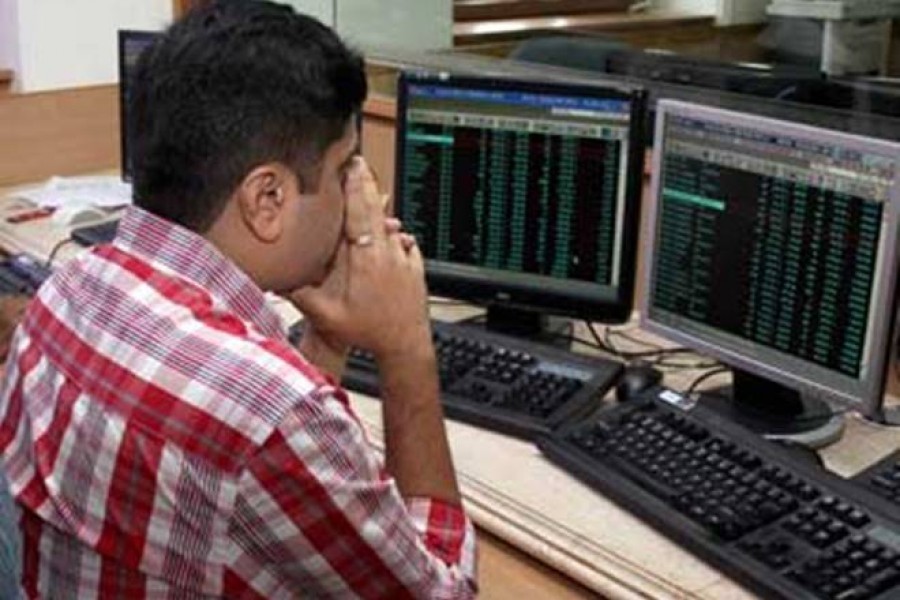
Published :
Updated :

Stock markets behave like the governments in developing and least developed countries. Here companies are like the ministers and Member of Parliaments (MPs). And their outside shareholders or minority shareholders both individuals and institutions are like the county's citizens and at best the opposition parties. In these countries, ruling parties and their representatives - the ministers and MPs try to keep the opposition parties inactive either by force, repression, and or by divide and rule. Similar is the case with the family business companies which are owned by few large founder shareholders. Outside minority shareholders, i.e., citizens do not have influence or control on the management which is captured by family members, i.e., large shareholders. They do not allow outside shareholders to organise. Therefore, we do not see any association of the shareholders both individuals and institutions.
In the developed countries to the contrary, these two parties - the government and the opposition are equally strong. Here the opposition is called the shadow government. Similarly, minority shareholders enjoy legal protection from the state. Institutional shareholders (the opposition parties) have their strong associations and committees (Institutional Shareholders' Committee and National Pension Fund in UK, Council of Institutional Investors and CalPERS in USA). Studies show that 85 per cent of public companies are family owned and they own more than 45 per cent of share capital. Institutions own around 20 per cent. The rest 35 per cent is owned by mutual funds and individual shareholders. There are around 300,000 individual shareholders. Institutions own around 40 per cent in the developed countries who raise voice against management and insider shareholders' opportunistic behaviour. Institutions and individuals have no track record of active shareholder activism in many developing countries.
In the least developed countries (LDCs), there is also increasing participation of the business community in the parliament and the government. In Bangladesh it is around 60 per cent. Many banks are owned by the MPs. The BGMEA gave reception to 29 garments industry owners who were elected MPs in theninth parliament.
Owner-managers of the country's family-owned companies even in the publicly listed companies take excess salaries and benefits, key executives are family members or their friends, there are not active and functioning independent directors and audit committee. The absence of these control and governance mechanisms works as weapons to abuse the minority shareholders. Dividend is declared on average once in three years. Our tax regulation, Income Tax Ordinance 1984 (Section 16B) has introduced additional tax on companies for not paying dividend. There had been several scandals in the stock market. Many companies' annual reports are not available up-to-date in the website.
Minority shareholders are abused by management overpaying itself. Management tries to charge personal expenses to the company. Consumption of higher salaries, bonus, and benefits by management (founder directors) is a major cause for denying dividend to minority shareholders. They can use company assets for family use. Related party transactions in favour of the family shareholders are another way of abusing the minority shareholders. Assets are purchased at inflated price and sold at lower price. Minority shareholders are excluded from management decisions, financial decisions, and profit participation. Our Companies Act 1994 (sections 195 and 233) does not have effective provisions rights for minority shareholders.Although there is provision for minority shareholders to apply to the court for investigations of abuse, they cannot bear the cost of expensive lawsuits. There are studies showing more legal protection of shareholders bring more expanded stock market in terms of market capitalisation to GDP, investment-GDP ratio, credit to private sector, and share turnover.
Like citizens lose interest in voting in parliamentary election, minority shareholders in Bangladeshi companies rarely participate in AGM and voting. Unlike developed countries, there is no system of electronic voting. In the developed countries there are both management-initiated (large shareholders) and shareholder-initiated (minority shareholders) agendas in the AGM but in our case, so far there is no evidence of shareholder-initiated agendas. Thus AGMs are just legal and ornamental but not functional and effective.
The Bangladesh Securities and Exchange Commission (BSEC), the stock market regulator is not fully governed according to internationally accepted governance principles. It does not have a single nonexecutive director. Importantly it does not make public its financial statements, which is a rare case around the world. In UK, USA and even Thailand, SECs are governed by majority independent nonexecutives. The importance of independent nonexecutives in good corporate governance is well-documented around the world.
As the government provides very little space to opposition parties so is the case with the companies. Parliamentary standing committees in Bangladesh are chaired by the government party MPs whereas in the developed countries these are chaired by the opposition parties' MPs. Our companies employ one or two independent nonexecutive directors (outside directors) whereas in the UK independent nonexecutive directors are the majority in the Boards. Importantly, the boards are chaired by the nonexecutives.
As government sector gets some privileges so does publicly listed companies compared to private companies. Government employees' salaries and benefits are much higher than in the private sector (more than two times according to available studies) particularly in the developing and least developed countries. Publicly listed companies in Bangladesh pay corporate tax at around 10 per cent less than that in the private companies (now it is 25 per cent and 32.5 per cent respectively). In the developed countries there is no difference in corporate tax rates between public and private companies, and salaries and benefits in government and private sector are also very close.
Available studies document that functioning of stock markets depends on the functioning of the government, its parliament, judiciary, and executive. Inclusive government, its transparency, and overall a competitive environment are preconditions for a well-functioning stock market.
Dhiman Chowdhury, PhD is Professor of Accounting, University of Dhaka.


 For all latest news, follow The Financial Express Google News channel.
For all latest news, follow The Financial Express Google News channel.